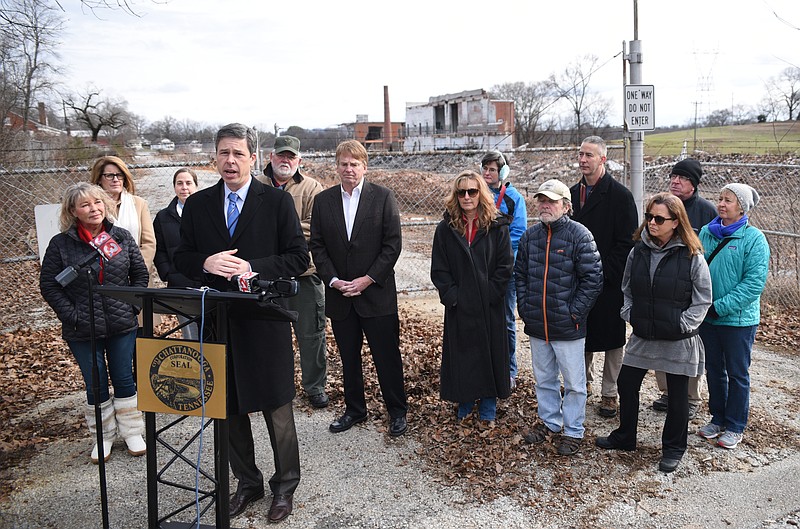
Despite Mayor Andy Berke's claim of success Thursday in his pledge to end veteran homelessness in Chattanooga, data provided by the Homeless Coalition conflicts with the city's numbers.
In an application to the U.S. Interagency Council on Homelessness, one of the agencies responsible for confirming the achievement, the city reported several measurements of veteran homelessness that were smaller than what was reported by a source at the coalition who was not authorized to discuss the application.
The city wrote in its application that the by-name list of veterans experiencing homelessness is "updated in real time and reviewed daily" and reported a total of seven veterans housed in emergency shelters as of Dec. 31, 2016, but data from the coalition showed 17 were in emergency shelters on that date.
The application also claimed that there was only one chronically homeless veteran who was not in permanent housing. That person was exempted because the individual had been offered a permanent home but had instead chosen to enter transitional housing.
Because that individual was exempted, the city reported zero chronically homeless veterans in response to one of four benchmarks set out by homelessness council.
However, the coalition recorded that nine of the 17 veterans in emergency shelters at the end of 2016 were chronically homeless.
Finally, the city wrote that its data was "comprehensive" and agreed that the community had "identified all veterans experiencing homelessness."
"After careful and consistent review of 2 years worth of data, the City of Chattanooga is confident the by-name list of veterans will not exceed a number of 20 veterans at any given time, and the by-name list will only reduce in number from this date on," the report read.
But preliminary numbers from the annual point-in-time count conducted in January by the coalition showed at least 22 veterans remain unsheltered in Chattanooga.
The number could still rise as outreach continues and, as an unofficial census, homeless advocacy groups say the PIT count should only be considered an absolute floor for the total number of homeless individuals.
A spokesman for the homelessness council did not comment on the discrepancies between numbers provided by the city and the coalition.
Heather Hoffman, the city's homeless program coordinator, stood by the numbers sent from the city to the homelessness council in the application.
"The accuracy of the data provided to USICH was confirmed by both the [U.S. Department of Veterans Affairs] and Volunteer Behavioral Healthcare System's MASH program who are extremely detailed and thorough in their data collection," she wrote in an email.
"As the comprehensive USICH review panel affirmed, the coalition of partners working to end veteran homelessness in Chattanooga have shown they have the capacity to quickly and efficiently move veterans from homelessness to housed."
Hoffman also said the coalition was part of the review process for submitting the application to USICH and had "ample opportunity to communicate their concerns to USICH."
Contact staff writer Emmett Gienapp at egienapp@timesfreepress.com or 423-757-6731. Follow him on Twitter @emmettgienapp.
